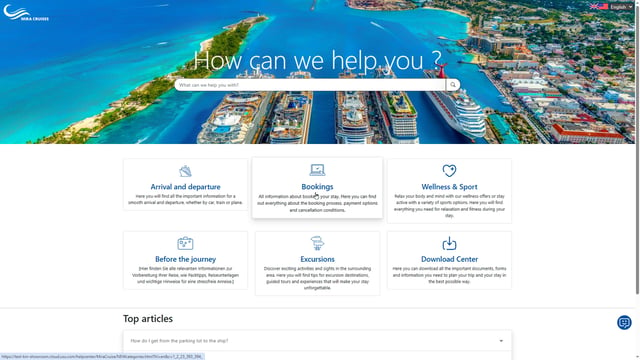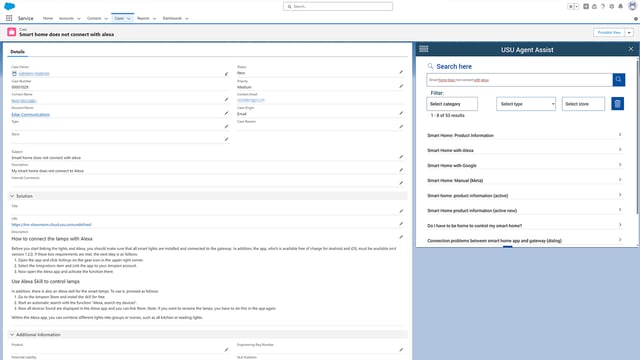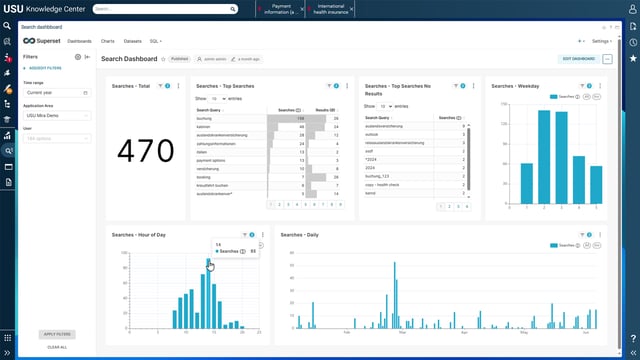- Home
- Knowledge Management
Customer Service Knowledge Management




AI-powered knowledge at your fingertips
Provide fast, reliable answers across all channels—and boost efficiency and customer satisfaction at the same time.
higher first call resolution rate
reduced call handling time
faster onboarding time
Why we stand out
100% answer quality
Purpose-built AI
Single-source-of-truth
24/7 self-service
Seamless channel integration
Knowledge community
Modular KM software—tailored to your workflow

Centralize your service knowledge with AI and workflows
Use our knowledge center as your single source of truth. With AI-driven content curation and smart feedback loops, your team always has access to up-to-date, reliable information.

Let AI agents simplify content creation and quality assurance
Our AI agents support your knowledge workflows—from suggesting content and improving article quality to answering user queries and monitoring performance. Boost efficiency and free up your experts for the tasks that truly matter.

Empower customers with self-service on any channel
From chat to help center widget—our knowledge management tool helps customers help themselves, improving satisfaction and reducing support effort.

Seamlessly connect knowledge to your systems and AI models
Integrate USU Knowledge Management into your CRM, helpdesk and collaboration tools—and connect it to your AI stack. Standard interfaces and open APIs enable smooth access to knowledge, whether by users or large language models (LLMs) in your AI workflows.

Offer round-the-clock support with AI-powered chatbots
Deliver fast, helpful answers 24/7. Our chatbot solution boosts efficiency and creates a seamless customer experience through GenAI-powered conversations

Turn insights into better service decisions
Analyze user behavior and content usage with powerful dashboards. Improve service quality and content performance with data-driven decisions.
Knowledge Center

Centralize your service knowledge with AI and workflows
Use our knowledge center as your single source of truth. With AI-driven content curation and smart feedback loops, your team always has access to up-to-date, reliable information.
Knowledge AI-Agents

Let AI agents simplify content creation and quality assurance
Our AI agents support your knowledge workflows—from suggesting content and improving article quality to answering user queries and monitoring performance. Boost efficiency and free up your experts for the tasks that truly matter.
Knowledge Self-Service

Empower customers with self-service on any channel
From chat to help center widget—our knowledge management tool helps customers help themselves, improving satisfaction and reducing support effort.
Knowledge Integrations

Seamlessly connect knowledge to your systems and AI models
Integrate USU Knowledge Management into your CRM, helpdesk and collaboration tools—and connect it to your AI stack. Standard interfaces and open APIs enable smooth access to knowledge, whether by users or large language models (LLMs) in your AI workflows.
Chatbot

Offer round-the-clock support with AI-powered chatbots
Deliver fast, helpful answers 24/7. Our chatbot solution boosts efficiency and creates a seamless customer experience through GenAI-powered conversations
Knowledge Analytics

Turn insights into better service decisions
Analyze user behavior and content usage with powerful dashboards. Improve service quality and content performance with data-driven decisions.
Skip the details and contact us directly
Ready to talk KM? Let’s start the conversation
We do the best work - always

Gartner
USU Named as
Representative Vendor

Forrester
Customer Service Knowledge Management (Q4/2024)
USU Named as
Strong Performer

G2
Get in touch with an expert
Do you have questions about our offering? A quick call can be way more helpful than a long email chain. Talk to one of our experts to explore our products and see them in action.

Brian Riley
Sales Development
We are here to help
Send us a message
No matter if you like to partner with USU or just have a few questions.








